The Occupation of Palestine in the Global Media, France’s Positive Step in Palestinian Solidarity and Türkiye’s Unwavering Support for Palestine.
The Occupation of Palestine in the Global Media, France’s Positive Step in Palestinian Solidarity and Türkiye’s Unwavering Support for Palestine.
By Dr. Halim Gençoğlu
Those following the Palestine agenda may have seen that Egyptian and Tunisian families have been attempting to send bottles filled with rice and grains into the sea, hoping they reach Gaza. This initiative, launched by Egyptian citizens, is called “A Bottle of Hope for Gaza, From Sea to Sea.” Some of these bottles reportedly did reach the shores of Gaza. Such a gesture needs to be analyzed on multiple levels—humanitarian, symbolic, psychological, and geopolitical.
Indeed, the idea of “hope from sea to sea” highlights how even the smallest action, such as throwing a bottle of rice into the sea, can have profound meaning when trying to reach a starving and blockaded population. Undoubtedly, this is not a move made by states, but by people of conscience. It is a path of compassion that transcends walls despite the blockade.
Of course, a few bottles cannot feed an entire society or replace coordinated aid convoys and cargo ships, yet in Gaza, each grain of food can mean the difference between life and death. This symbolic gesture can also draw international attention and inspire more organized humanitarian efforts.
In a way, it tells the people of Gaza: “You are not forgotten.” It reaffirms human dignity for Palestinians and turns the sense of helplessness among Egyptians into action. Similar sensitive gestures reinforce the feeling of a shared Muslim identity in the region.
While highlighting the inaction of governments, it also raises the ethical question: Why must the people resort to throwing bottles, rather than their governments acting? Though these types of support efforts may not solve the Gaza crisis, they ultimately awaken the humanitarian conscience.
The Occupation of Palestine in the Global Media
The international landscape is shifting. Diplomatic leaders who once remained silent or offered only high-level commentary are now taking concrete steps, ranging from legal accountability to official recognition of Palestine. Yet, the humanitarian catastrophe on the ground continues to worsen. Despite international efforts, the years-long violence persists, and peace remains a fragile hope.
At this critical juncture, French Foreign Minister Jean‑Noël Barrot emphasized the urgency of these measures and reaffirmed France’s commitment to recognizing Palestine as part of a “collective initiative” with allies. On July 24, 2025, President Emmanuel Macron announced that France would officially recognize the State of Palestine during the upcoming UN General Assembly in September. With this move, France became the first G7 country to make such a declaration. Macron reaffirmed his support for a two-state solution by linking recognition to the future disarmament of Hamas and guarantees for Israel’s security.
France’s Positive Step in Palestinian Solidarity
On the issue of Palestine, major powers such as the US, Russia, China, the UK, and France hold significant influence in international relations and institutions like the UN. Their stance can directly affect issues like the recognition of Palestine or pressure (or support) toward Israel. For example, the US, long considered Israel’s strongest ally, often supports pro-Israel policies, weakening Palestinian claims. Meanwhile, Russia and China have at times voiced support for Palestine, seeking to maintain balance.
In this context, France and Saudi Arabia co-hosted a UN conference in New York on July 28–29, 2025, aimed at promoting a two-state solution. Topics included hostage releases, Hamas disarmament, Palestinian Authority reform, and Gaza reconstruction.
Earlier in July, the Hague Group, established in early 2025, held a major summit in Bogotá, with over 30 countries agreeing on six legal and institutional steps: a weapons embargo on Israel, blocking arms transfers, and supporting ICC investigations. The International Criminal Court (ICC) even issued arrest warrants for Israeli leaders, including the Prime Minister and Defense Minister. While some of Israel’s allies condemned the move, Hague Group members backed it as a necessary enforcement of international law.
Surprisingly, France has taken decisive diplomatic steps aligned with humanitarian aid, political dialogue, and regional stability regarding Palestine’s recognition. Macron described this move not as political opportunism but as a moral necessity for lasting peace. Still, France’s recent “positive moves” on Palestine—especially the announcement of recognition by September 2025—have been met with skepticism in both diplomatic circles and the public. For years, France has claimed to support the two-state solution, yet it has avoided concrete sanctions against Israel’s settlement policies. While it calls for peace, it continues arms sales and strategic partnerships with Israel, raising questions globally.
France’s position is diplomatically significant, but whether it is genuinely sincere will depend on whether its actions follow its words. If these declarations are simply a means to appease international opinion, they may not yield real change. However, if France begins to exert actual pressure on Israel and supports legal mechanisms, it may indeed pass the test of sincerity.
Türkiye’s Unwavering Support for Palestine
Amid fragmented and often polarized global reactions to the humanitarian crisis in Palestine, the Turkish people’s steadfast and clear voice has resonated for years. Türkiye’s support for Palestine, ranging from humanitarian aid to diplomatic advocacy, is a cornerstone of its foreign policy and moral compass. Despite this strong solidarity, Türkiye’s efforts are frequently ignored, distorted, or completely overlooked on international social media platforms.
Türkiye’s ties with Palestine are not the result of a recent geopolitical calculation—they trace back centuries to the Ottoman era, when Jerusalem held a special administrative and spiritual status. In modern times, this solidarity has taken a more tangible and effective form.
At the 2009 World Economic Forum in Davos, Turkish President Recep Tayyip Erdoğan famously condemned Israeli President Shimon Peres by stating: “When it comes to killing, you know very well how to kill,” and walked off stage in protest of the massacre in Gaza.
From Mavi Marmara to Present-Day Aid
One of the most striking symbols of Türkiye’s commitment was the Mavi Marmara incident in 2010. Part of the Gaza Freedom Flotilla, the Turkish ship set out to break the Israeli blockade and deliver humanitarian aid. The Israeli military raided the ship, killing 10 Turkish activists. The incident sparked global outrage and heightened tensions between Ankara and Tel Aviv. Yet, this only deepened Türkiye’s solidarity with Palestine.
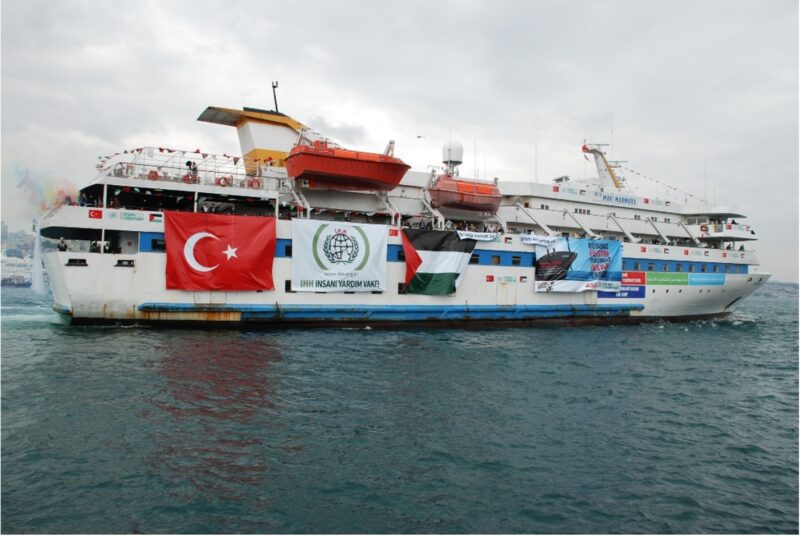
Türkiye’s support isn’t just a gesture from the past—it is a multi-dimensional and ongoing commitment. Just days ago, AFAD (Türkiye’s Disaster and Emergency Management Authority) sent medical supplies, food, and shelter materials to Gaza. In the region’s dire conditions, every aid item that reaches civilians becomes a lifeline, more than just a humanitarian act—it is a testament to shared humanity.
Despite these visible and consistent efforts, a troubling trend emerges on global social media: Türkiye’s aid is often unseen or buried by algorithms. While other countries’ posts about Palestine easily trend, Türkiye’s voice is frequently suppressed.
President Erdoğan and other Turkish leaders continue to speak out on the injustices in Gaza and the West Bank. For many Turks, the Palestinian cause is not “foreign” but a personal pursuit of justice. It resonates with their sense of fairness, historical identity, and a vision of regional peace built on mutual respect.
Türkiye’s bond with Palestine also shapes its vision for peace in the Middle East. While other nations’ support may be tied to geopolitical interests or temporary alliances, Türkiye’s backing of Palestine is part of a broader pursuit of justice and lasting solutions. This includes ending the occupation, upholding international law, and establishing an independent Palestinian state.
Conclusion
The position of major powers on the independence of the Palestinian people is of critical importance politically, diplomatically, economically, and in terms of security. These countries are decisive actors in either resolving or perpetuating the conflict. Thus, Palestine’s aspirations for independence, recognition, and peace largely depend on their stance.
At this point, the global response to the Palestine issue appears to be shifting, as evidenced by France’s recent recognition of Palestine—a remarkable turning point in international diplomacy. However, beyond these new initiatives, Türkiye’s long-standing moral stance was formed long before today’s headlines. Rooted in Ottoman memory, Islamic solidarity, and a modern sense of justice, this support has remained clear even in the grey zones of international politics.
From the symbolic stance in Davos to the bloody deck of the Mavi Marmara, Türkiye has not just been an ally, but a moral witness. In a world where political interests often override human dignity, Türkiye’s unwavering stance reminds us that solidarity is about consistency, not visibility.
As Palestine’s struggle continues—on diplomatic platforms and in the streets of Gaza—the historical alignment between Türkiye and countries like France may open the door to a new ethical consensus. While Ireland, Spain, and Norway have recognized Palestine, France’s move as the first G7 nation may also be seen as part of a race for diplomatic leadership. Yet Macron’s conditioning of recognition on Hamas disarmament and Israeli security gives the impression that the move is more about buying time or calming public opinion.
Until true sovereignty and justice are achieved, solidarity must not be performative, but transformative. In short, we cannot know what France will do tomorrow—but until Palestine is free, Türkiye will not lower its voice.
References
Erdoğan, R. T. (2009). World Economic Forum Davos speech. [Transcript].
Finkelstein, N. (2010). This Time We Went Too Far: Truth & Consequences of the Gaza Invasion. OR Books.
Gençoğlu, H. (2024). Batı’nın Afrika Talanı. İstanbul: Kronik Yayınları
Güçlü, Y. (2013). “Türkiye and the Palestinian Issue: Past and Present.” Middle Eastern Studies, 49(2), 267–282.
International Criminal Court. (2025). Statement on arrest warrants issued regarding Gaza conflict. [Press release].








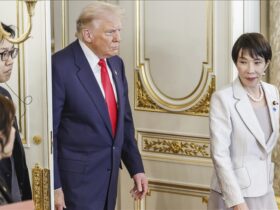
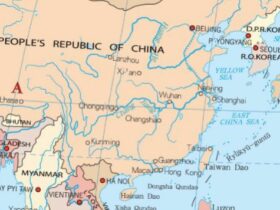

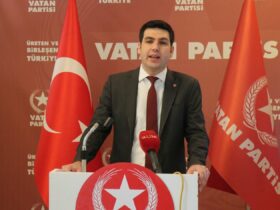
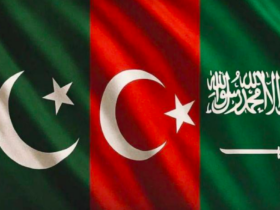
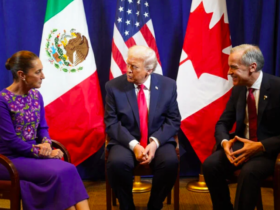
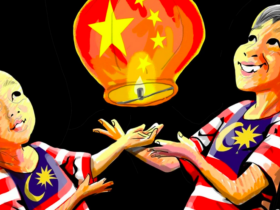

Leave a Reply